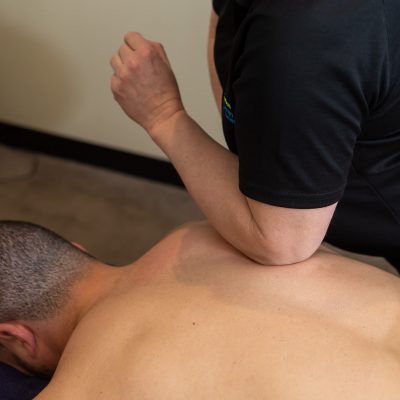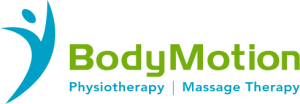Your shoulders are composed of large muscles that regularly exert themselves when carrying, lifting, pushing and pulling – all movements you will do countless times throughout your life. Because of the extent of their use, shoulder injuries are very common.
‘Shoulder’ is a colloquial term used to describe a four jointed system:
- Linking the shoulder blade (scapula) and upper arm (humerus) is the glenohumeral joint. The muscles surrounding this structure are known as the rotator cuff.
- Connecting the collar bone (clavicle) and scapula is the acromio-clavicular joint.
- Joining the clavicle and breast bone (sternum) is the sternoclavicular joint.
- Finally, there is the scapulothoracic joint which is located between the chest wall and scapula.
Shoulder injuries will typically involve these joints and the surrounding muscles and/or ligaments. Specific damage to elements of this system will limit certain ranges of motion of the shoulder. The shoulder is actually capable of a broader range of motion than any other part of the body and can assume hundreds of different positions. Unfortunately, this means the shoulder is usually quite unstable, and this often results in injury.
Common shoulder injuries include: Frozen shoulder, shoulder tendonitis, rotator cuff strain, dislocated shoulder and a broken collar bone. Shoulder injury symptoms typically include pain, weakness, stiffness and joint instability. Shoulder pain and shoulder injuries frequently occur due to trauma or sporting overuse.
Treatment Options for Shoulder Injuries
The type of physiotherapy treatment you would receive depends on the specific condition that you have and whether you’ve undergone surgery or not. In addition, your physiotherapist will ask you about your goals for rehabilitation.
Physiotherapy treatment for shoulder injuries may include the following:
- Cold therapy (ice pack application)
- Hot pack application
- Immobilisation (splinting/bandaging)
- Transcutaneous Electrical Nerve Stimulation (TENS)
- Ultrasound
- Soft tissue mobilisation (massage therapy)
- Shoulder joint mobilisation
Physiotherapy exercises:
- Range of motion
- Stretching or flexibility
- General conditioning
- Shoulder muscle strengthening
Patient education:
- About the patient’s particular shoulder problem
- Precautions and activity modification
- Self-care of symptoms
- Wound self-care (after surgery)
- Home exercise program
- Shoulder injury prevention
- Return to work or sports rehabilitation program
Physiotherapy treatment and advice can dramatically improve the treatment and prevention of shoulder pain.
Give us a call today on (03) 9873 3333 if you’d like to discuss your shoulder injury or if you’d like to book in for a physiotherapy treatment.



